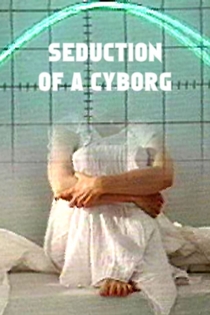
Lynn Hershman Leeson
2021Her activist films on injustice within the art world and society at large have been praised worldwide. !Women Art Revolution! won first prize in the Montreal Festival for Films on Art and hailed by the Museum of Modern Art as one of the three best documentaries of 2012. Holland Cotter of the New York Times called it “the most comprehensive documentary ever made on the feminist art movement.” Her 2009 film Strange Culture – which the NY Time deemed “the perfect balance of form and content” and The Nation called “a brilliant and moving examination of fear and its manipulation” – resulted in the the release of an artist facing a prison sentence of 23 years.
Tell Them We Were Here
Griff Williams, Keelan Williams
Alicia McCarthy, Sadie Barnette
Tell Them We Were Here is an inspirational feature-length documentary about eight artists who show us why art is vital to a healthy society and reminds us that we are stronger together.
Tell Them We Were Here
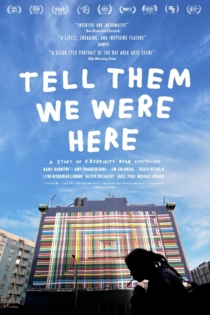
!Women Art Revolution
Lynn Hershman Leeson
Lynn Hershman Leeson, Eleanor Antin
Through intimate interviews, provocative art, and rare, historical film and video footage, this feature documentary reveals how art addressing political consequences of discrimination and violence, the Feminist Art Revolution radically transformed the art and culture of our times.
!W.A.R.: !Women Art Revolution
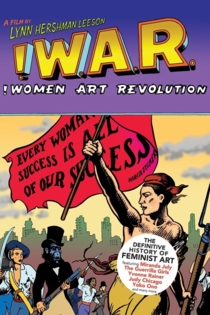
Tania Libre
Lynn Hershman Leeson
Tilda Swinton
In 2015 reknown Cuban artist Tania Bruguera was imprisoned in Havana after advocating for freedom of expression. Shortly after her release she returned to the United States and located Dr. Frank M. Ochberg, the founding father of trauma therapy, particularly PTSD and Stockholm Syndrome. The filmed therapy sessions between them exposes an intimate yet profound analysis of Cuba, surveillance and the politics in of repression embedded in government and family structures.
Tania Libre

Virtual Love
Lynn Hershman Leeson
Rinde Eckert, Ingrid Hardy
A love story for the 90s: Valery falls in love with an identical twin, a virtual reality scientist, and finds she can have a more intimate relationship with him through the computer screen than in person. Or is it really him?
Virtual Love

Strange Culture
Lynn Hershman Leeson
Tilda Swinton, Thomas Jay Ryan
The film examines the case of artist and professor Steve Kurtz, a member of the Critical Art Ensemble (CAE). The work of Kurtz and other CAE members dealt with genetically modified food and other issues of science and public policy. After his wife, Hope, died of heart failure, paramedics arrived and became suspicious when they noticed petri dishes and other scientific equipment related to Kurtz's art in his home. They summoned the FBI, who detained Kurtz within hours on suspicion of bioterrorism.
Strange Culture
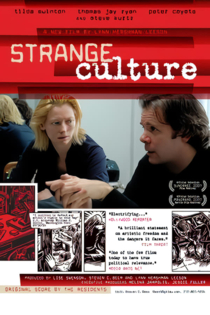
Teknolust
Lynn Hershman Leeson
Tilda Swinton, Jeremy Davies
Anxious to use artificial life to improve the world, Rosetta Stone, a bio-geneticist creates a Recipe for Cyborgs and uses her own DNA in order to breed three Self Replicating Automatons, part human, part computer named Ruby, Olive and Marine.
Teknolust
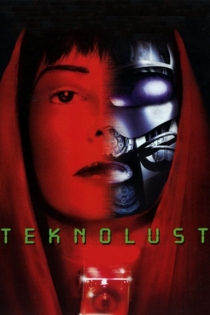
30/30 Vision: Three Decades of Strand Releasing
Randy Barbato, João Pedro Rodrigues
Maria Schneider, Drew Droege
Over 30 filmmakers and friends of Strand Releasing have come together to honor the company’s indelible contribution to independent cinema over the past thirty years. The participating filmmakers have each created a short film for the project, all shot on iPhones.
30/30 Vision: Three Decades of Strand Releasing
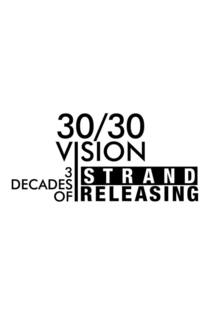
Conceiving Ada
Lynn Hershman Leeson
Tilda Swinton, Francesca Faridany
Emmy Coer, a computer genius, devises a method of communicating with the past by tapping into undying information waves. She manages to reach the world of Ada Lovelace, founder of the idea of a computer language and proponent of the possibilities of the "difference engine." Ada's ideas were stifled and unfulfilled because of the reality of life as a woman in the nineteenth century. Emmy has a plan to defeat death and the past using her own DNA as a communicative agent to the past, bringing Ada to the present. But what are the possible ramifications?
Conceiving Ada
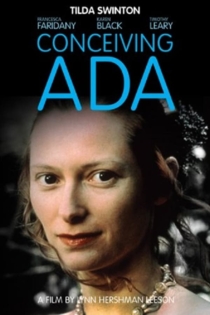
Shadow Stalker
Lynn Hershman Leeson
Tessa Thompson, January Steward
Shadow Stalker outlines the history of Predictive Policing, Digital Identity Theft and the dangers of Data Mining, that uses algorithms, performance and projections to make visible private Internet systems that are increasingly used by law enforcement and promote racial profiling. Drawing on a network of critical thinkers on surveillance and machine learning, Hershman Leeson abstracts the red square zone into a specter that haunts the work. Where one falls on the map in relation to this red square becomes a proxy for who one is-location, a proxy for identity.
Shadow Stalker
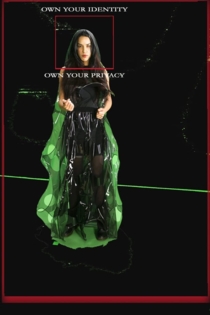
Twists in the Cord (or) … Other Extensions of the Telephone
Lynn Hershman Leeson
R.U. Sirius, Lynn Hershman Leeson
This docudrama presents the history of the telephone, updated and told from the point of view of a character who uses the screen as both a connection to intimacy and a condom for safe sex.
Twists in the Cord (or) … Other Extensions of the Telephone
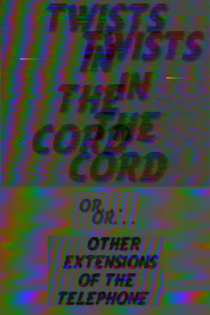
VertiGhost
Lynn Hershman Leeson
VertiGhost, a newly commissioned work by Lynn Hershman Leeson for the Fine Arts Museums, draws the viewer into a meditation about notions of authenticity and the construction of identity. Inspired by the Legion of Honor’s role as a location for Alfred Hitchcock’s Vertigo (1958), Hershman Leeson explores the tension at the core of Vertigo between the difficulty or lack of desire to distinguish between reality and fiction versus the pursuit of truth. The eponymous ghost of Hershman Leeson’s project is the elusive nature of a singular identity that haunts the characters in the 1958 film, its most enigmatic representation being the painting of a supposed distant relative of the film’s protagonist Madeleine, around which her character and fate is imagined.
VertiGhost
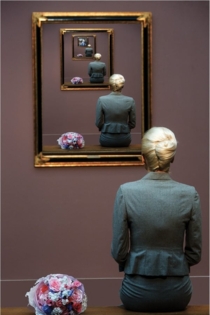
Seeing Is Believing
Lynn Hershman Leeson
Kathy Acker, Rinde Eckert
Film becomes a metaphor for lost history and its “negative“ impact on successive generations who look for stability in an electronic world that lacks sufficient mediation. Video retrieves lost memories for the child who, through her camera, seeks to find her father.
Seeing Is Believing

Binge
Lynn Hershman Leeson
Binge turns on confession and self-image, using obesity as the main course. Losing her familiar shape to overeating, Lynn Hershman occupies electronic space to announce her despair and her subsequent—and partially successful—diet. It is a fitting medium for such a declaration, for not only is much of self-identity generated by television, but shape, volume, and appearance are rendered abstract by the video effects Hershman employs.—Steve Seid
Binge

